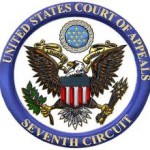 The Federal Highway Administration and the Indiana Department of Transportation decided to complete an Indiana segment of I-69, which will eventually run from Canada to Mexico. Environmentalists opposed the route and sued under the Clean Water Act, 33 U.S.C. 1344, which authorizes the Army Corps of Engineers to issue permits for discharge of dredged or fill material into navigable waters of the United States. A permit will be denied if there is “a practicable alternative to the proposed discharge which would have less adverse impact on the aquatic ecosystem,” 40 C.F.R. 230.10(a), or if the discharge “would be contrary to the public interest.” 33 C.F.R. 320.4(a)(1). The permit at issue allows six streams to be filled where the highway crosses them and permits destruction of wetlands. The environmentalists proposed, in the alternative, simply upgrading to federal interstate highway standards, and existing route. In an environmental impact statement, the Corps concluded that no less environmentally damaging alternative was practicable, that the project was not contrary to the public interest, that damage to wetlands would be modest and would be offset by creation of new wetlands. The Seventh Circuit affirmed, rejecting challenges to the environmental analysis.
The Federal Highway Administration and the Indiana Department of Transportation decided to complete an Indiana segment of I-69, which will eventually run from Canada to Mexico. Environmentalists opposed the route and sued under the Clean Water Act, 33 U.S.C. 1344, which authorizes the Army Corps of Engineers to issue permits for discharge of dredged or fill material into navigable waters of the United States. A permit will be denied if there is “a practicable alternative to the proposed discharge which would have less adverse impact on the aquatic ecosystem,” 40 C.F.R. 230.10(a), or if the discharge “would be contrary to the public interest.” 33 C.F.R. 320.4(a)(1). The permit at issue allows six streams to be filled where the highway crosses them and permits destruction of wetlands. The environmentalists proposed, in the alternative, simply upgrading to federal interstate highway standards, and existing route. In an environmental impact statement, the Corps concluded that no less environmentally damaging alternative was practicable, that the project was not contrary to the public interest, that damage to wetlands would be modest and would be offset by creation of new wetlands. The Seventh Circuit affirmed, rejecting challenges to the environmental analysis.
Hoosier Envtl. Council, v. U.S. Army Corps of Eng’rs
July 18, 2013 by Leave a Comment
Speak Your Mind
You must be logged in to post a comment.